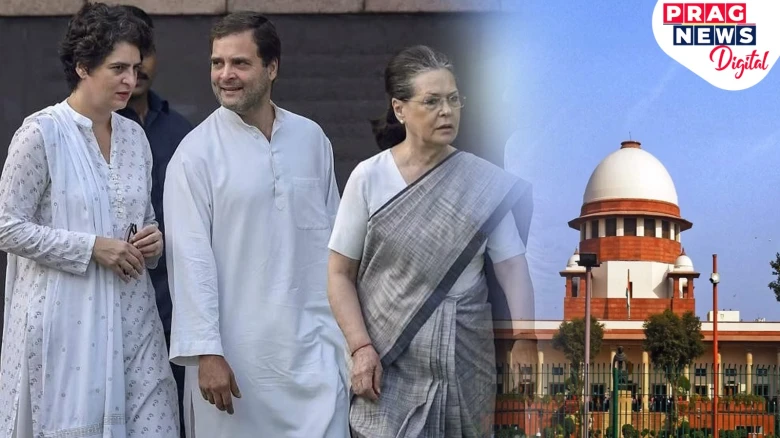Regional

This development came during the hearing of a series of petitions filed by Congress leaders Sonia Gandhi, Rahul Gandhi, and Priyanka Gandhi Vadra, as well as...
Digital Desk: The Supreme Court of India, in a significant development, indicated that centralized assessment might be necessary for income tax purposes when there are cross-transactions involving individuals. This development came during the hearing of a series of petitions filed by Congress leaders Sonia Gandhi, Rahul Gandhi, and Priyanka Gandhi Vadra, as well as certain trusts connected to the Gandhis and the Aam Aadmi Party (AAP). The petitions challenged the decision of the Income Tax authorities to transfer their tax assessments from the faceless system to the central circle.
A two-judge bench, presided over by Justice Sanjeev Khanna, heard the arguments presented by the petitioners and the respondents. Senior Advocate Arvind P Datar, representing the Gandhis, informed the bench that numerous proceedings had commenced after the introduction of the faceless system in 2019. However, he highlighted a specific case involving the alleged arms dealer Sanjay Bhandari, where an arrest led to the consolidation of matters related to his clients due to Robert Vadra's involvement, who is related to one of the parties.
Sanjay Bhandari, a fugitive arms dealer, faces multiple charges in India and is wanted by Indian law enforcement agencies.
In response to Datar's submissions, Justice Khanna emphasized that centralized assessment might be necessary when cross-transactions involve individuals. This statement hinted at the possibility of a more centralized approach to income tax assessment in such cases.
Senior Advocate A M Singhvi, representing AAP, faced questions from the bench regarding the five-month delay in filing the appeal. Justice Khanna remarked that such delays could be fatal in cases like this. Singhvi explained that the delay was due to overlapping subject matters and mentioned that the Delhi High Court had relied on the IT Department's counter, which referred to the Satyender Jain case.
Singhvi argued that if the department were to transfer cases, it should not have been a simple transfer order. He added that while the two-step procedure is acknowledged, the High Court had deemed it non-mandatory.
Justice Khanna clarified that the matter was not being transferred out of Delhi and stressed that the IT Department's prerogative was to transfer. He emphasized that his concern was solely with the legal provisions, not the politics surrounding the case, and that the two-step procedure was essentially an administrative order.
The Supreme Court bench adjourned the hearing until October 9, 2023, and expressed the need for clarity on whether a computer selects officers and the verification committee in faceless assessment cases. Additionally, Justice Khanna requested information on the stage of proceedings and ordered the production of original files for examination.
This development in the ongoing legal battle between the petitioners and the Income Tax authorities could have far-reaching implications for the assessment and taxation of cross-transactions involving individuals in India. The Supreme Court's final ruling on the matter will be eagerly anticipated by all parties involved.
Leave A Comment